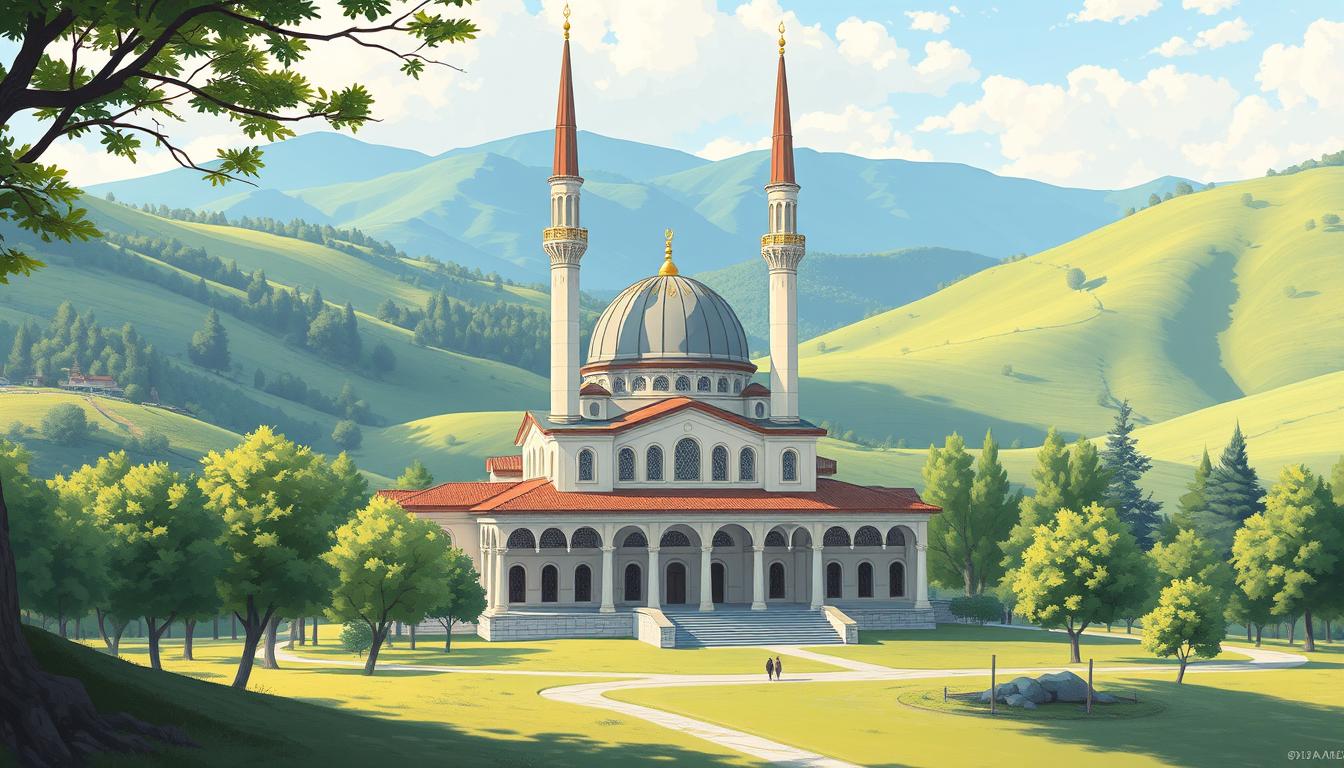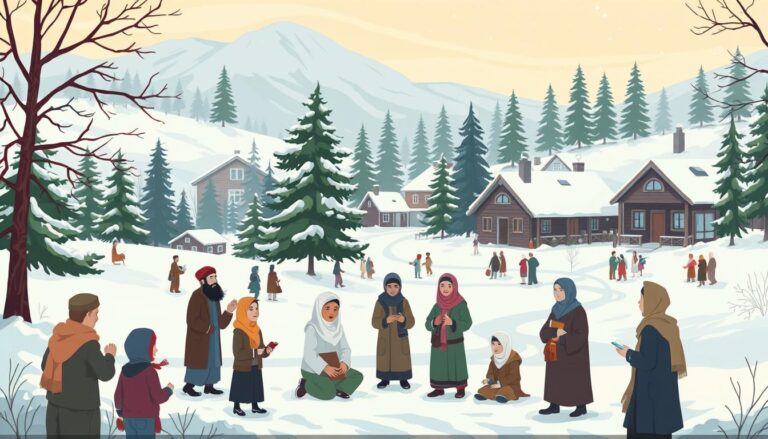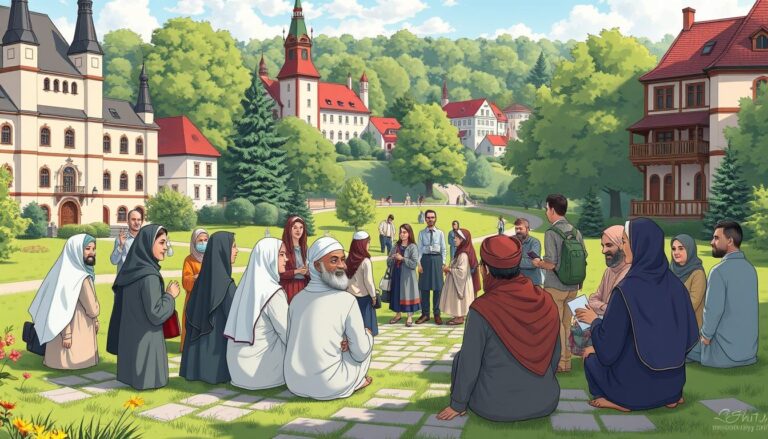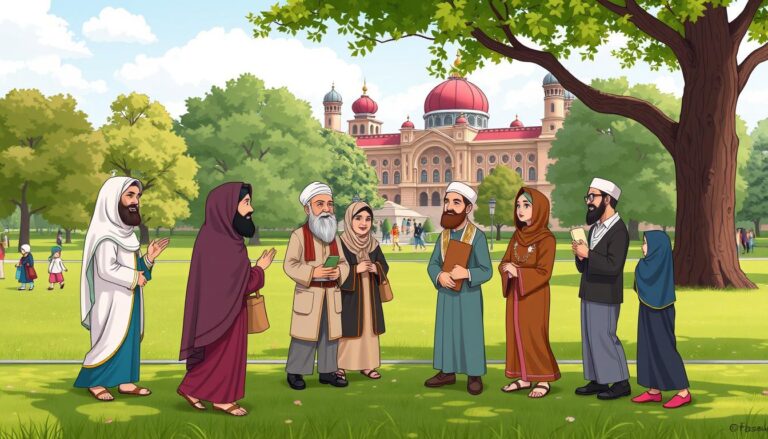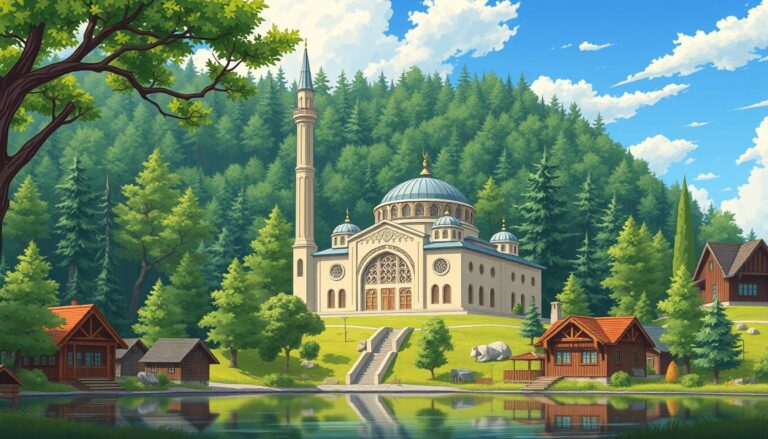Islam in Bulgaria
According to the 2021 Census, the total number of Muslims in Bulgaria stood at 638,708, accounting for a remarkable 9.8% of the country’s population. This diverse Muslim community comprises primarily Turks, Bulgarians (known as Pomaks), and Roma, with a significant presence in northeastern Bulgaria and the Rhodope Mountains. Islam is the second-largest religion in the country, following Christianity.
Key Takeaways
- The Muslim population in Bulgaria has fluctuated over the years, peaking at 1,110,295 in 1992 and declining to 638,708 in 2021.
- Muslims in Bulgaria are mainly concentrated in northeastern regions and the Rhodope Mountains, with the Smolyan Province having the largest Muslim population.
- Islam in Bulgaria has been heavily influenced by the Ottoman rule from 1396 to 1878, which led to restrictions on Christians and the forced conversion of some Bulgarians to Islam.
- The Muslim community in Bulgaria includes Turks, Pomaks (Bulgarian-speaking Muslims), and Roma, each with their own distinct cultural and historical backgrounds.
- Pomaks have faced assimilation efforts from the communist regime, leading to a complex identity landscape within the Muslim community in recent decades.
Historical Overview of Islam in Bulgaria
The roots of Islam’s presence in Bulgaria can be traced back to the early contact between the Bulgarian Khanate and the Muslim world. In the early 700s, Khan Tervel of Bulgaria famously aided the Byzantines in breaking the Arab siege of Constantinople, marking one of the first documented interactions between the Bulgarians and the Islamic faith.
Centuries later, during the reign of Tsar Simeon I, Bulgaria and the Arab world coordinated their attacks on the Byzantine Empire, further solidifying the Bulgarian-Arab relations. In the mid-1200s, a group of Seljuk Turks is believed to have settled in North Dobruja, though the historical accuracy of this settlement is debated among scholars.
Contact with Islam Prior to the Ottoman Conquest
Despite these early contacts with Islam in Bulgaria, the scholarly consensus holds that the first substantial Muslim communities in Southeastern Europe, including Bulgaria, emerged in the late 14th century as the region fell under the influence of the expanding Ottoman Empire.
“The cultural, political, historical, and economic factors influenced the changing dynamics of Islam in Bulgaria post-socialism.”
The Early Islamic influence in Bulgaria was shaped by a complex interplay of regional and global forces, setting the stage for the more prominent role of Islam during the centuries of Ottoman rule.
Ottoman Rule (1396–1878)
The Ottoman conquest of Bulgaria in 1396 marked the beginning of almost five centuries of Ottoman rule in Bulgaria. During this period, Christians in the Ottoman Empire were treated as Bulgarian dhimmis, facing various restrictions and higher taxes, including the poll tax known as jizye. One of the most notorious practices was the devşirme, or “blood tax,” where the healthiest and brightest Christian boys were taken from their families, enslaved, converted to Islam, and employed in the Janissary military corps or the Ottoman administrative system.
The Ottoman tax system in Bulgaria was complex, with Bulgarians facing a variety of taxes such as tithe (“yushur”), land tax (“ispench”), commerce levy, irregular taxes, and corvees. This resulted in an overall tax burden twice as high for non-Muslims compared to Muslims. Additionally, Bulgarians were barred from certain professions and activities, further limiting their economic and social opportunities.
Despite the challenges, the Bulgarian population mainly remained within the Orthodox church during the Ottoman rule. The decline of the Ottoman Empire in the late 19th century, marked by military defeats by Christian Europe, led to increased involvement of Austria and Russia as potential allies of the Bulgarian Christians, ultimately contributing to the restoration of the Bulgarian state in 1878.
The Ottoman rule in Bulgaria lasted from 1396 to 1878, covering nearly 500 years. During this period, the Ottoman Empire established several vilayets (provinces) in Bulgaria, each ruled by a Sanjakbey or Subasi. The Bulgarian nobility was largely destroyed during this “Turkish yoke” period, and the Bulgarian people were deprived of national self-awareness, education, and their own cultural and religious practices.
The restoration of the Bulgarian state in 1878 was a significant milestone, as it allowed the country to adopt a constitution, establish a national army and police force, and develop educational institutions and centralized healthcare services. However, the legacy of Turkish rule continued to hinder the development of political thought and led to political struggles characterized by individual ambitions and a lack of collective interests in parties.
Spread of Islam through Colonization and Conversion
The spread of Islam in Bulgaria was facilitated by both Ottoman colonization and the conversion of native Bulgarians. The Ottomans played a significant role in increasing the Muslim population in the region through their mass population transfers and forced conversions.
Many Bulgarians, known as Pomaks, converted to Islam during this period. They are considered the descendants of the indigenous Slavic population who were converted to Islam under Ottoman rule. The spread of Islam in Bulgaria was not solely through forced mass conversions, but also involved individual or small-scale conversions, especially in the initial centuries of Islamic influence.
Ottoman Population Transfers and Conversions
The Ottoman colonization of Bulgaria involved the settlement of Muslim populations from Asia Minor, further contributing to the growth of the Muslim community in the region. The Ottomans also implemented a system of population transfers and forced conversions that significantly impacted the demographic and religious makeup of Bulgaria.
- The biggest wave of migrations to Bulgaria after the Russo-Turkish War of 1877–1878 consisted of people escaping repressions in the Ottoman Empire.
- Two laws introduced in 1881 and 1890 were aimed at addressing the scale of migrations and their impact on the demographic structure of Bulgaria.
The turn of the 19th and 20th centuries saw significant changes in the Bulgarian ownership structure, known as the Agrarian Revolution. This process involved the transfer of land from Muslim to Bulgarian ownership, further shaping the Pomak history and the spread of Islam in the region.
“The spread of Islam was facilitated by Muslim economics and trading, the Islamic Golden Age, and the age of the Islamic gunpowder empires.”
Islam in Bulgaria after Independence
After Bulgaria regained its independence from the Ottoman Empire in 1878, the Muslim population faced new challenges. Bulgarian nationalism and the desire to create a homogenous Christian state led to policies aimed at assimilating or expelling Muslim minorities. This resulted in the forced migration and displacement of many Turks and Pomaks from Bulgaria.
The Muslim communities in post-Ottoman Bulgaria had to adapt to their new status as a minority in the newly formed nation-state. Despite the challenges, they participated in the rise of the Young Turk movement and engaged in debates on the role of Islam in modern society, the importance of education, and political relationships with non-Muslim rulers.
Today, Islam in Bulgaria after 1878 remains an important part of the country’s diverse religious landscape. According to the 2011 census, approximately half a million (577,139 people) or nearly 6% of Bulgarian citizens are Muslims, making it the EU member-state with the largest Muslim citizen share. The majority of these Muslims are Turks, while the remainder includes Pomaks (Bulgarian-speaking Muslims) and Gypsies.
“The history of Balkan and Mediterranean borderlands during the 19th and 20th centuries is explored through academic research.”
Despite the challenges faced by the Muslim community, scholars studying Ottoman, Balkan, and Turkish history continue to examine the political, social, and intellectual transformations in the late Ottoman Empire and its successors in the Balkans and modern Turkey. These research projects focus on migration and the disintegration of the Ottoman imperial world, as well as the emergence of nation-states in the region.
The Muslim population in Bulgaria has faced various challenges since the country’s independence, but they have adapted and maintained their presence in the country. As research continues to explore the complex history and transformations of the region, the story of Islam in Bulgaria after 1878 remains an important part of the country’s rich cultural and religious diversity.
Demographics and Distribution
The Muslim population in Bulgaria is a significant minority, comprising 9.8% of the total population according to the 2021 Census. Ethnically, the Muslim community in Bulgaria is predominantly composed of Turks, Bulgarians (known as Pomaks), and Roma Muslims, residing primarily in the northeastern regions and the Rhodope Mountains.
Muslim Population Percentages and Geographical Spread
The Smolyan Province has the highest percentage of Muslims, with around 71% of the population identifying as such. Other areas with large Muslim majorities include the municipalities of Chernoochene (96.8%), Venets (95.9%), Satovcha (91.3%), Ruen (90.9%), and Kaolinovo (90.0%).
The geographical distribution of Muslims in Bulgaria reflects the historical influence of the Ottoman Empire, which ruled the region for nearly five centuries. The concentration of Turks, Pomaks, and Roma Muslims in the northeastern and southern regions of the country is a legacy of the Ottoman-era colonization and conversion efforts.
“The Muslim population in Bulgaria is a significant minority, comprising 9.8% of the total population according to the 2021 Census.”
While the overall percentage of Muslims in Bulgaria has remained relatively stable over the past few decades, the demographic composition within the Muslim community has seen some shifts. The Turk population has declined, while the Pomaks and Roma Muslims have become more prominent, reflecting changes in migration patterns and natural population dynamics.
Muslim Bulgarians (Pomaks)
The Pomaks, also known as Bulgarian Muslims, are a unique group within the Bulgarian population. They are Bulgarians who have converted to Islam, generally considered descendants of the indigenous Slavic population who embraced the new faith during the Ottoman rule. The Pomaks primarily reside in the Rhodope Mountains of Southern Bulgaria, where they speak a variety of archaic Bulgarian dialects.
Pomaks have a multifaceted identity, with the predominant ethnic identity being Bulgarian (around 200,000 or three-quarters of the total Pomak population) and the predominant religious identity being Muslim. This blend of ethnic and religious affiliations has shaped the Pomak culture and practices over the centuries.
Pomak Identity and Culture
Pomaks have maintained a strong connection to their Bulgarian roots, even after their conversion to Islam. Their traditional occupations, such as stock breeding and agriculture, have been passed down through generations. In the 20th century, many Pomaks have also found work in construction and mining industries.
The Pomak identity and culture have been influenced by various political factors throughout history. Attempts at assimilation by larger co-religionist neighbors, such as Turks and Albanians, have shaped the Pomak’s multi-level group identity, which encompasses linguistic, historical, ethnic, and religious elements.
Pomak Religious Practices
- Pomaks have a unique blend of Muslim and Bulgarian Orthodox customs, known as religious syncretism.
- This syncretism is considered evidence of the Pomaks’ common Bulgarian origin, as it reflects the intertwining of their ancestral traditions with the newly adopted Islamic faith.
- Pomak folk songs and traditions often depict themes of reluctance to marry into a foreign faith, as seen in the story of Zlata, who chose death over marrying a Turk.
- However, some Pomak folk songs also express a willingness to engage in mixed marriages, challenging the official mythology and showcasing the cultural diversity within the community.
The Pomaks’ rich cultural heritage and their unique position as Bulgarian Muslims have made them a subject of intense study and debate. Organizations like the International Centre for The Problems of The Minorities and Cultural Interaction (IMIR) have been instrumental in preserving and promoting the history and identity of the Pomak community.
Islam in Bulgaria
In recent decades, the Muslim community in Bulgaria has faced various challenges in maintaining their religious practices and identity. The Muslim population, comprising around 12% of the overall population, has encountered restrictions on religious activities, issues with property restitution, and instances of discrimination and harassment.
One of the key challenges has been the difficulty in obtaining permits to build new mosques. Some municipalities have even enacted ordinances prohibiting certain religious activities by unregistered Muslim groups. The Muslim community has also experienced incidents of vandalism and antisemitic rhetoric targeting their places of worship and members.
Despite these obstacles, the Muslim community in Bulgaria has demonstrated resilience. Foreign aid has contributed to the construction of 700 new mosques since the fall of communism, and organizations from Saudi Arabia, Turkey, and the Gulf states have provided funding for Koranic schooling, scholarships, and job training for Bulgarian Muslims.
The Muslim population in Bulgaria is diverse, with both Turkish Muslims and Slavic Muslims (Pomaks) represented. However, some Pomaks have turned to a more conservative form of Islam, known as Salafism, to distinguish themselves from the Turkish Muslims. This shift has led to a hybridized form of Islam, blending the local Hanafi tradition with Salafi influences.
The growth in Muslim women wearing headscarves in Bulgaria reflects the changes in gender relations influenced by foreign aid. While some educated, working-class Muslim women have resisted religious influence that limits their rights, younger women under 30 are increasingly attracted to a more traditional version of their faith, seeking social mobility opportunities.
“The adaptation of Salafis to the local Hanafi context in Bulgaria is seen as a strategy to merge doctrinally and remain relevant within the national setting.”
The challenges facing the Muslim community in Bulgaria are multifaceted, ranging from restrictions on religious activities to the internal divisions within the Islamic leadership. However, the community has demonstrated resilience and a willingness to adapt to the changing social and political landscape, while maintaining their cultural and religious identity.
Religious Practices and Customs
Bulgaria’s Muslim community maintains a rich tapestry of religious practices and cultural traditions that have been passed down through generations. At the heart of this vibrant Islamic heritage are the mosques that dot the landscape, serving as hubs for worship, community gatherings, and the preservation of customs.
Mosques, Celebrations, and Traditions
The construction and use of mosques hold profound significance for Muslim religious practices in Bulgaria. These sacred spaces not only facilitate daily prayers but also host important Islamic festivals and traditions in Bulgaria, such as the celebratory occasions of Eid al-Fitr and Eid al-Adha.
Beyond the walls of the mosques, Muslim Bulgarians have preserved distinct cultural elements that are deeply influenced by their faith. This can be seen in their traditional clothing, cuisine, and music, all of which reflect the unique blend of Bulgarian and Islamic heritage.
“The mosques in Bulgaria serve as more than just places of worship; they are living monuments to the enduring presence of Islam in the country’s cultural fabric.”
As the second-largest religious group in Bulgaria, the Muslim community has played a significant role in shaping the nation’s social and cultural landscape. Their commitment to maintaining traditional religious practices and customs has helped preserve the rich tapestry of diversity that characterizes the Bulgarian experience.
Challenges and Issues
The Muslim community in Bulgaria continues to face a range of challenges, including restrictions on their religious activities, property restitution issues, and instances of discrimination and harassment. Muslim leaders have reported difficulties in obtaining permits to build new mosques, and some municipalities have enacted ordinances prohibiting certain religious activities by unregistered groups.
One of the significant issues is the Challenges facing Muslims in Bulgaria. The Muslim population in the country, estimated at around 1.5 million, has experienced various challenges in maintaining their religious practices and traditions. Discrimination against Muslims has also been a concern, with reports of vandalism and antisemitic rhetoric targeting their places of worship and members.
Moreover, the Restrictions on Muslim religious activities have posed a significant obstacle for the Muslim community. In some areas, local authorities have made it challenging for Muslims to obtain the necessary permits to build new mosques, limiting their ability to practice their faith freely. This has led to a shortage of places of worship, particularly in urban areas like Sofia, where there is only one mosque due to licensing difficulties.
Despite these challenges, the Muslim community in Bulgaria has shown resilience and a growing commitment to their faith. The youth are becoming more knowledgeable and active in religious activities, seeking a better future. Additionally, there has been a growing interest in Islam within the broader Bulgarian society, with some Bulgarians converting to the religion after learning about it online.
The biggest challenge faced by Muslims in Bulgaria is the lack of imams and financial difficulties in paying their salaries.
Overall, the Challenges facing Muslims in Bulgaria, including Discrimination against Muslims and Restrictions on Muslim religious activities, continue to be a significant concern for the Muslim community. However, the community’s resilience and the growing interest in Islam within Bulgarian society suggest a potential for progress and greater integration in the future.
Integration and Socio-Economic Status
The integration of Muslims into Bulgarian society has been an ongoing process. While some progress has been made, challenges remain in ensuring equal opportunities and representation for Muslim minorities. Socio-economically, Muslims in Bulgaria tend to have slightly better demographic indicators, such as higher birth rates and lower death rates, compared to the overall population.
However, more work is needed to address disparities and promote the full inclusion of Muslims in all aspects of Bulgarian society. The Integration of Muslims in Bulgaria has been a complex and nuanced issue, with various factors influencing the Socio-economic status of Muslims in Bulgaria and their Muslim participation in Bulgarian society.
“The impact of the liberalization of human and minority rights after 1989 on the political mobilization of minorities is highlighted.”
The report on the European integration of Bulgaria emphasizes the changing opportunities and constraints for minorities, including the Turkish and Muslim Bulgarian (Pomak) communities. It discusses the effects of pre-accession EU programs on local administration, non-governmental sectors, small and medium-sized enterprises (SMEs), and agricultural producers, and the anticipated impact of Bulgaria’s accession to the EU in 2007 on the economic development of the region.
- The Turkish population in Bulgaria numbered 675,500 out of a total population of 7,029,349 in 1946.
- In the period 1950-1951, 154,397 individuals migrated from Bulgaria to Turkey, with a pattern of settling primarily in the Marmara and Aegean Sea regions.
- Total number of immigrants from 1950-1988 to specific regions in Turkey: 190,285 persons from 49,733 families, with an additional 80,633 persons from 20,048 families in other regions.
The report also highlights specific policies and events, like the introduction of changes in policies towards the Turkish minority in 1958, which impacted Turkish-language education and publication rights within Bulgaria. Constitutional developments have also reflected shifts in the recognition of minority rights, affecting the Turkish community between 1947 and the present day.
Overall, the integration of Muslims into Bulgarian society remains a complex and evolving issue, with both progress and challenges. Addressing socio-economic disparities and ensuring full participation of Muslim minorities in all aspects of Bulgarian life will be crucial in the years to come.
Interfaith Dialogue and Coexistence
In Bulgaria, efforts to foster interfaith dialogue and promote coexistence between religious communities are ongoing. The government, civil society organizations, and religious leaders have worked to address tensions and encourage mutual understanding between the diverse faiths present in the country.
Despite the challenges, there are positive examples of collaboration and initiatives aimed at building bridges between the religious groups in Bulgaria. Interfaith relations in Bulgaria have been a focus of attention, with dialogue between religious communities playing a crucial role in promoting religious tolerance in Bulgaria.
“The necessity of inter-religious dialog in the global world is highlighted by Mr. Gülen to maintain peace and respect differences.”
Figures like Mr. Fethullah Gülen have been instrumental in promoting interfaith dialogue, even facing criticism for his efforts to establish relationships with minority leaders and engage in discussions with religious figures such as the Greek Orthodox Patriarch Bartholomew.
Additionally, the expansion of Turkish schools and hospitals internationally by Turkish businessmen and educators, following the philosophy advocated by Mr. Gülen, has contributed to strengthening interfaith understanding and cooperation.
The shared responsibility and commonalities among Islam, Christianity, and Judaism, as emphasized by Mr. Gülen, have provided a foundation for ongoing efforts to foster interfaith dialogue and coexistence in Bulgaria and beyond.
Conclusion
The story of Islam in Bulgaria is one of complex historical interactions, demographic shifts, and ongoing efforts to maintain religious diversity and social integration. With a Muslim population comprising nearly 10% of the country’s total population, the presence of Islam in Bulgaria dates back centuries, shaped by the country’s contact with the Muslim world and the centuries-long Ottoman rule.
While the Muslim community in Bulgaria has faced various challenges, including restrictions on religious activities and instances of discrimination, the preservation of religious diversity and the continued inclusion of Muslim Bulgarians in the country’s social, economic, and political fabric will be crucial for Bulgaria’s future. The importance of interfaith dialogue and coexistence cannot be overstated, as it fosters mutual understanding, respect, and the enrichment of the country’s cultural tapestry.
As Bulgaria looks towards the future, the prospects for the Muslim community remain cautiously optimistic. With ongoing efforts to promote integration and address the needs of this important segment of the population, the country can continue to embrace its religious diversity and harness the contributions of all its citizens, regardless of their faith, in shaping a more inclusive and prosperous nation.
Source Links
- Islam in Bulgaria
- Bulgarian Muslims
- Bulgarian-speaking Muslims (Pomaks) in Bulgaria – Minority Rights Group
- Muslims in Bulgaria
- Balkan Affairs: Turkish and Saudi Influence on Bulgarian Muslims
- Bulgaria – Medieval, Orthodox, Balkan
- Ottoman Bulgaria
- Consequences of the Turkish rule on contemporary political thought in Bulgaria
- Spread of Islam
- Conversions to Islam in Bulgaria: Voluntary or Forced?
- Islam in Modern Bulgaria: 1878 to Present Days
- Bulgarian Muslims between Empire and Nation
- Bulgaria – United States Department of State
- Religion in Bulgaria
- Europe’s Growing Muslim Population
- A Religious Minority in The Balkans
- Fluid Identities of the Pomaks, the Bulgarian speaking Muslims – Donau
- The Miniskirt and the Veil: Aid and Islam in Bulgaria
- Hybridizing Islam in the Balkans: The Rise of Salafi-Hanafism in Bulgaria
- Islam in Bulgaria, competing generations
- Bulgaria – United States Department of State
- Religious Beliefs in Bulgaria
- National Profiles | World Religion
- Muslims in Bulgaria: Dispersed after persecution, reliant on youth
- Bulgaria – United States Department of State
- Bulgaria – United States Department of State
- Microsoft Word – Bulgaria_case_study_revised.doc
- Microsoft Word – petkova.doc
- Interfaith and Intercultural Dialogue

